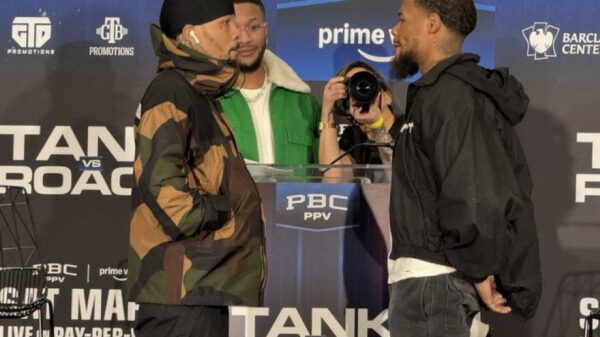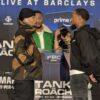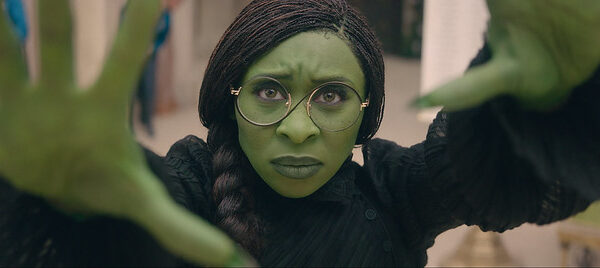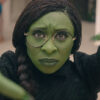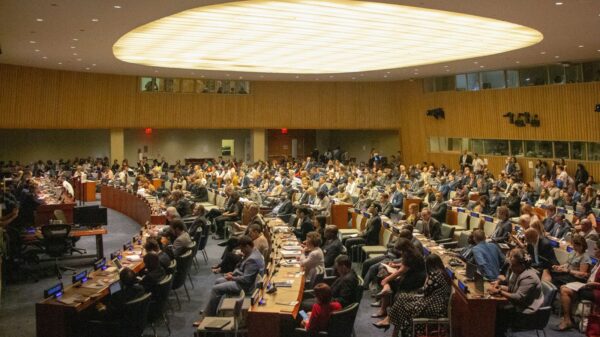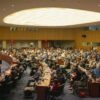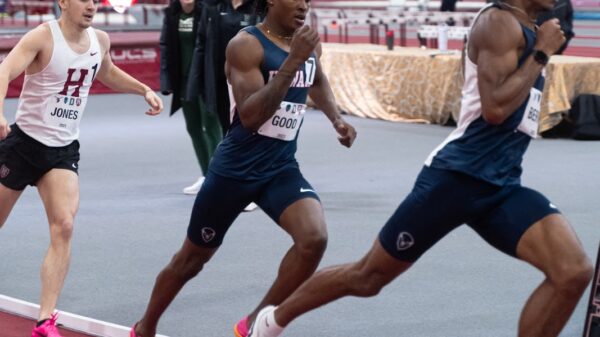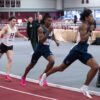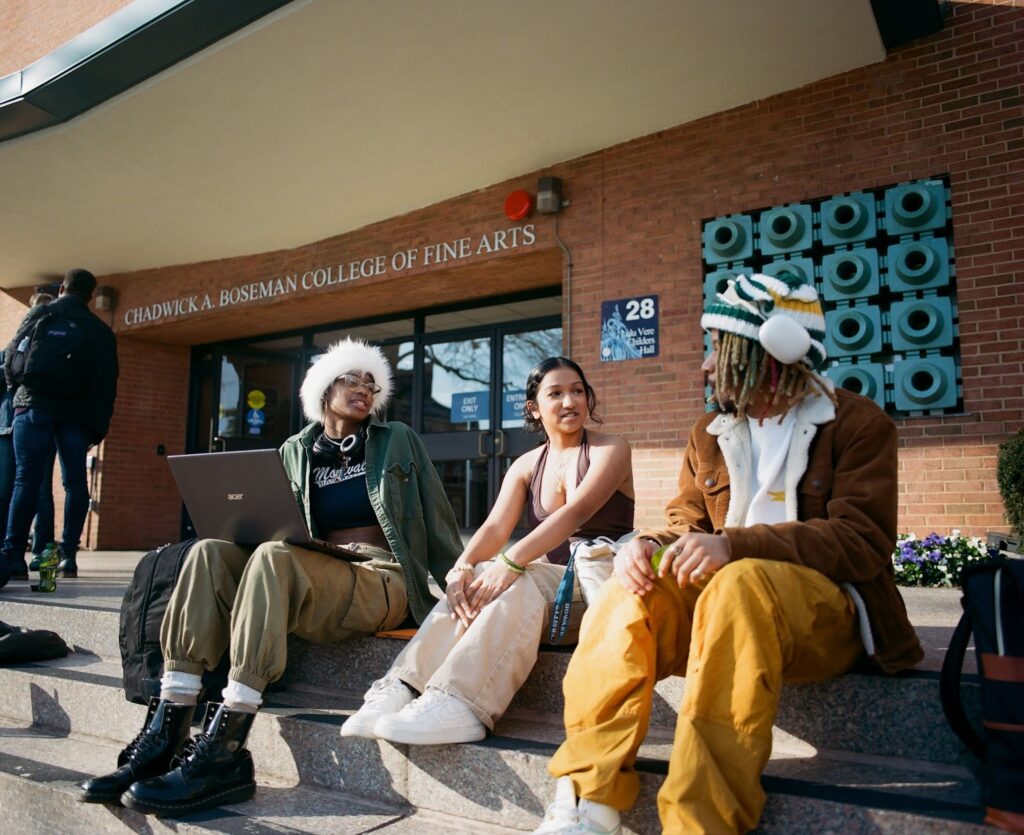
Howard University is just one of nearly 100 HBCUs in the U.S. that were founded to educate Black students shut out of a segregated higher education system.
While a majority of HBCU students have been Black, their campuses have always been open to students of all races and ethnicities.
The National Center for Education Statistics data shows that in 2022, nearly a quarter of students enrolled at an HBCU did not identify as Black. At Howard University, 13 percent of its student body is composed of Hispanic or Latinx, Asian, White, Native American and Native Hawaiian students.
In this photo essay, The Hilltop follows three of them and examines their motivation to attend Howard and their experience on campus.
Jerusha
When Jerusha Tallapally was first accepted to Howard during her senior year of high school, she did what has become a rite of passage for many “baby bison” over the years.
She joined a group chat.
The group chat, which lived on GroupMe, was made up of other prospective students looking forward to the day they would step foot on campus as official Howard University students. But there was one difference: Tallapally is Indian. Most of the members in the group chat were Black.
“A couple people who obviously weren’t from the DMV area had their reservations about it,” the junior computer information systems major said. Tallapally is from Prince George’s County, Maryland, where 64 percent of the population identified as Black or African American in 2022, according to the United States Census Bureau.
She remembers a bunch of her classmates applied to the school. Most were not accepted, but some were.
“I felt lucky to be one of those few who made it,” she said.
When she applied to Howard, Tallapally does not recall anyone saying that she “shouldn’t” because of her ethnicity. But the response she got when she joined the group chat made her question her choice.
“They got to kick me out of the group chats after they found out I was Indian,” she said. It made her wonder, “Did my decision hurt someone else?”
That was a few summers ago, since then, Tallapally said she has moved on. She keeps a small group of friends and doesn’t party much.
Sometimes she wishes there was a South Asian student association on campus, but she says that doesn’t make or break her experience, and is proud to be a student of Indian heritage at the university.
“I could have gone to any state school in Maryland, but I’m glad that I chose this,” Tallapally said. “I’ll never regret it.”
Andre
Andre De Santos is from El Paso, Texas, a town situated on the U.S. and Mexico border.
The junior political science major said that when he was looking for schools to apply to, his sights were set on the nation’s capital.
“I’m trying to go into political data,” De Santos said.
He applied to Georgetown and Howard. However, he said he wanted to attend a renowned school where he would feel seen as a student of color.
“I’m a Latino,” he said. And the Hispanic-Serving Institutions, or HSIs, he looked at were “not as prestigious as like a Howard would be.”
“So, I figured I would go to a school that empowers minorities because where I would go, that was to be so-called prestigious, it would be a PWI,” he explained. “I wasn’t really with that.”
His parents supported his interests, encouraging him to “leave his comfort zone,” and set up meetings with Howard alumni who told him there are “non-Black people that go to Howard all the time.”
Since coming to campus, De Santos said people are often “curious” as to why he chose the university. He says one of the first questions he is always asked is, “Why did you come here, or what’s your story?”
Although he says the questioning can get tiring, De Santos said he understands students’ apprehension toward non-Black students who attend the university.
“I don’t believe the Howard community is trying to be racist towards me. I think they’re just trying to be protectionist towards their own communities,” he said. “But I’m trying to show people your Latino brothers and sisters got your back.”
De Santos is a member of Changó, Howard’s Afro-Latine Student Association and Spanish Speaking Society, and notes that many issues impacting the Black people are simultaneously experienced by Hispanic and Latinx folks.
Since coming to Howard, he said he’s acquired a greater “connection” to the Black community and now brings a new sense of awareness when he’s in different spaces.
“I hope to create solidarity between both of us because we’ve been pitted against each other for so long,” he said.
Niharika
For Nepali student Niharika Mishra, her ethnic background did not play much of a role in her decision to come to Howard. Instead, she desired to attend a good business school outside of her home country.
“I knew I wanted to go to college in the U.S.,” the junior computer information systems major said. She looked at schools in Australia and the UK but had classmates who graduated ahead of her and studied at Howard.
“Our school was kind of like a feeder [school],” Mishra said. According to The Dig, Nepali students have become a “rapidly growing” sector of the international student population on campus. Overseas, Howard is regarded as “very liberal” with their financial aid.
“That’s the primary reason,” she said on Nepali students choosing Howard. “Like it isn’t HBCU, PWI, it’s education and financial aid.”
Mishra said Howard chose her because the school offered her the best financial aid package.
Her parents were nervous for her because they heard negative things about safety in Washington. Her uncle in Virginia echoed their concerns.
When she arrived on campus during her freshman year, she said she did not explore much. But eventually, she got more comfortable leaving her dorm room and found a community of other Nepali students on campus.
“I do have a lot of Nepali friends as opposed to American friends,” she said. “It’s easier.”
Mishra does not believe she is excluded from things because she’s from Nepal and considers herself “lucky” that she has not experienced anything that made her want to leave the university.
“People are welcoming,” she said. “They want to lift me up, and they want to see me succeed.”
Mishra is a team leader in Howard’s School of Business 21st Century Advantage Program or 21 CAP, where she leads underclassman students in their transition to becoming business professionals.
Copy edited by Alana Matthew


